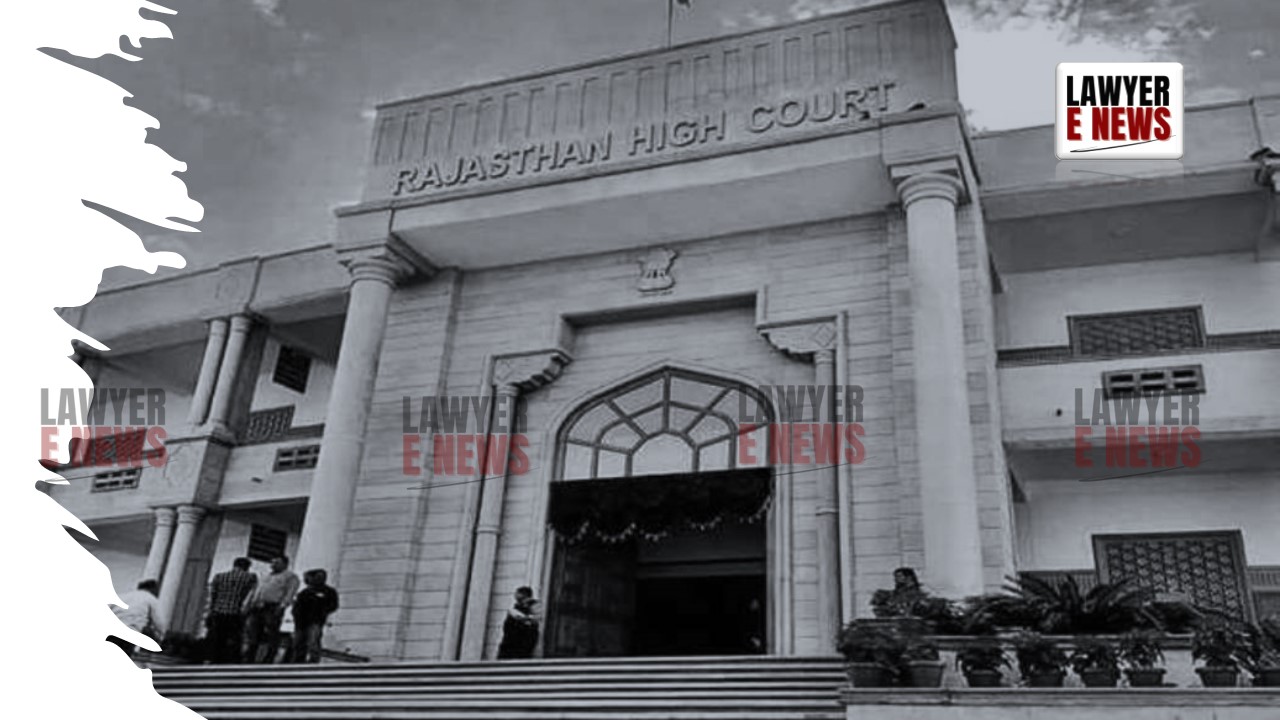-
by Admin
15 February 2026 5:01 PM



Granting interim orders to increase seats in medical institutions is improper and inconsistent with judicial precedents, as it affects students' futures and disrupts admission processes – Rajasthan High Court set aside an interim order passed by the Single Judge permitting an increase of MBBS seats from 50 to 100 in JIET Medical College. However, admissions made under the interim order were protected to avoid prejudice to the students, while emphasizing an expedited final adjudication of the case.
The respondents, JIET Medical College, applied for permission to increase its MBBS intake capacity to 150 seats under Section 28(3) of the National Medical Commission Act, 2019. The Medical Assessment and Rating Board (MARB) found deficiencies and approved only 50 seats. Dissatisfied, the college filed appeals, which were partially allowed for 50 seats, rejecting the additional 100 seats. The college challenged this decision before the Single Judge, who, by an interim order, permitted the increase of seats to 100, citing a “strong prima facie case” and alleged procedural lapses by the authorities.
The High Court addressed two primary questions:
Legality of interim orders increasing intake capacity in educational institutions, especially medical colleges
Impact of such orders on students, institutions, and the overall admission process
The Division Bench reiterated established judicial principles against interim orders that modify intake capacities in educational institutions, relying on a series of Supreme Court rulings, including:
Medical Council of India v. JSS Medical College (2005) 13 SCC 531: The Court emphasized that interim orders increasing seats create cascading effects, jeopardizing students’ careers if the college’s claim is ultimately found invalid.
Medical Council of India v. Kalinga Institute of Medical Sciences (2016) 11 SCC 225: The Supreme Court highlighted that granting admissions under such interim orders creates uncertainty and disrupts regulatory processes.
Dental Council of India v. Dr. Hedgewar Smruti Rugna Seva Mandal Hingoli (2017) 13 SCC 115: The Court disapproved of interim relief granting additional admissions, stating that such measures undermine the approval process and create chaos.
The High Court emphasized: “Courts should avoid issuing interim orders in educational matters that have a cascading effect on students and the system. Such reliefs should be reserved for final adjudication.”
The Bench observed that the Single Judge exceeded judicial norms by granting interim relief to increase seats without resolving the substantive issues in the writ petition. It noted:
Procedural Lapses vs. Judicial Caution: While the Single Judge noted procedural deficiencies in MARB’s decision, this did not justify interim relief that could disrupt established processes and create inequities.
Judicial Consistency: The interim order contravened precedents mandating caution in granting relief affecting medical admissions.
Impact on Students: Recognizing that admissions had already been made under the interim order, the Court refrained from disturbing the status quo to avoid prejudice to students.
The Bench concluded: “An interim order increasing seats in a medical college without final adjudication is inconsistent with judicial principles and creates administrative and academic uncertainties.”
While the Court set aside the principle of the interim order, it upheld the admissions already made under it to protect students’ interests. It directed:
Expedited Resolution: The Single Judge was requested to conclude the writ petition within one month, following the completion of pleadings in 10 days.
No Claim to Equity: The Court made it clear that if the final decision went against the respondents, students admitted under the interim order could claim no equities.
Judicial Restraint in Education Matters: The judgment underscores the importance of judicial caution in interfering with educational policies, particularly in medical institutions where regulatory compliance is critical.
Impact on Students: While interim orders are discouraged, courts recognize the need to balance administrative discipline with students’ welfare.
Precedent-Based Decision-Making: The ruling affirms adherence to established principles, ensuring consistency in judicial decisions affecting educational institutions.
Date of Decision: December 11, 2024
